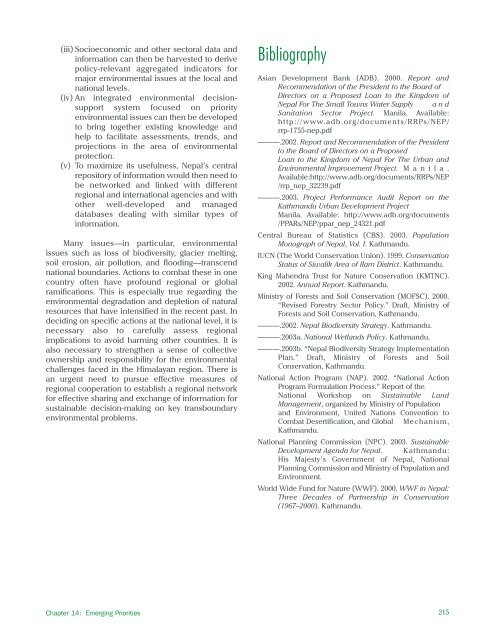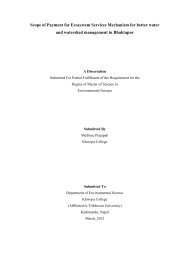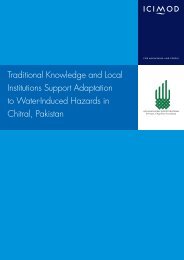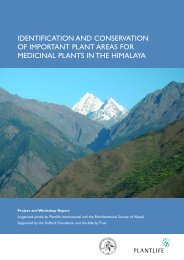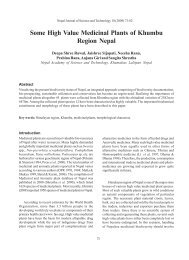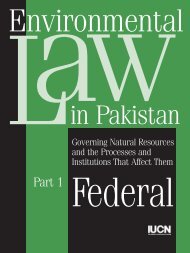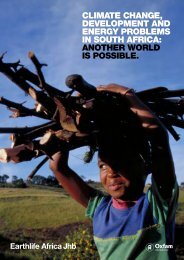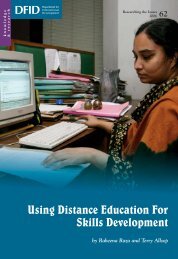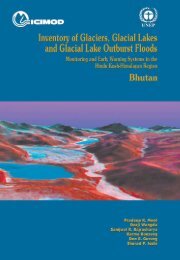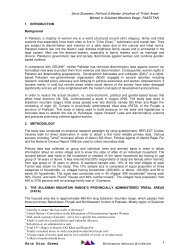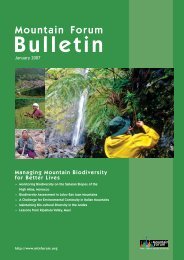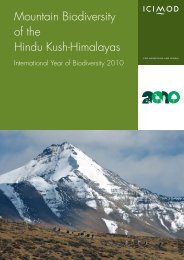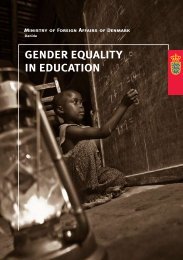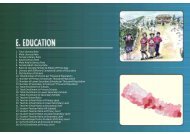ADB_book_18 April.qxp - Himalayan Document Centre - icimod
ADB_book_18 April.qxp - Himalayan Document Centre - icimod
ADB_book_18 April.qxp - Himalayan Document Centre - icimod
- No tags were found...
You also want an ePaper? Increase the reach of your titles
YUMPU automatically turns print PDFs into web optimized ePapers that Google loves.
(iii) Socioeconomic and other sectoral data andinformation can then be harvested to derivepolicy-relevant aggregated indicators formajor environmental issues at the local andnational levels.(iv) An integrated environmental decisionsupportsystem focused on priorityenvironmental issues can then be developedto bring together existing knowledge andhelp to facilitate assessments, trends, andprojections in the area of environmentalprotection.(v) To maximize its usefulness, Nepal’s centralrepository of information would then need tobe networked and linked with differentregional and international agencies and withother well-developed and manageddatabases dealing with similar types ofinformation.Many issues—in particular, environmentalissues such as loss of biodiversity, glacier melting,soil erosion, air pollution, and flooding—transcendnational boundaries. Actions to combat these in onecountry often have profound regional or globalramifications. This is especially true regarding theenvironmental degradation and depletion of naturalresources that have intensified in the recent past. Indeciding on specific actions at the national level, it isnecessary also to carefully assess regionalimplications to avoid harming other countries. It isalso necessary to strengthen a sense of collectiveownership and responsibility for the environmentalchallenges faced in the <strong>Himalayan</strong> region. There isan urgent need to pursue effective measures ofregional cooperation to establish a regional networkfor effective sharing and exchange of information forsustainable decision-making on key transboundaryenvironmental problems.BibliographyAsian Development Bank (<strong>ADB</strong>). 2000. Report andRecommendation of the President to the Board ofDirectors on a Proposed Loan to the Kingdom ofNepal For The Small Towns Water Supply a n dSanitation Sector Project. Manila. Available:http://www.adb.org/documents/RRPs/NEP/rrp-1755-nep.pdf———.2002. Report and Recommendation of the Presidentto the Board of Directors on a ProposedLoan to the Kingdom of Nepal For The Urban andEnvironmental Improvement Project. M a n i l a .Available:http://www.adb.org/documents/RRPs/NEP/rrp_nep_32239.pdf———.2003. Project Performance Audit Report on theKathmandu Urban Development ProjectManila. Available: http://www.adb.org/documents/PPARs/NEP/ppar_nep_24321.pdfCentral Bureau of Statistics (CBS). 2003. PopulationMonograph of Nepal, Vol. I. Kathmandu.IUCN (The World Conservation Union). 1999. ConservationStatus of Siwalik Area of Ilam District. Kathmandu.King Mahendra Trust for Nature Conservation (KMTNC).2002. Annual Report. Kathmandu.Ministry of Forests and Soil Conservation (MOFSC). 2000.“Revised Forestry Sector Policy.” Draft, Ministry ofForests and Soil Conservation, Kathmandu.———.2002. Nepal Biodiversity Strategy. Kathmandu.———.2003a. National Wetlands Policy. Kathmandu.———.2003b. “Nepal Biodiversity Strategy ImplementationPlan.” Draft, Ministry of Forests and SoilConservation, Kathmandu.National Action Program (NAP). 2002. “National ActionProgram Formulation Process.” Report of theNational Workshop on Sustainable LandManagement, organized by Ministry of Populationand Environment, United Nations Convention toCombat Desertification, and Global Mechanism,Kathmandu.National Planning Commission (NPC). 2003. SustainableDevelopment Agenda for Nepal. Kathmandu:His Majesty’s Government of Nepal, NationalPlanning Commission and Ministry of Population andEnvironment.World Wide Fund for Nature (WWF). 2000. WWF in Nepal:Three Decades of Partnership in Conservation(1967–2000). Kathmandu.Chapter 14: Emerging Priorities215


